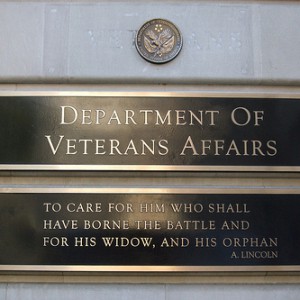Results 1 to 1 of 1
Thread Information
Users Browsing this Thread
There are currently 1 users browsing this thread. (0 members and 1 guests)
-
06-06-2014, 05:04 AM #1Senior Member


- Join Date
- May 2007
- Location
- South West Florida (Behind friendly lines but still in Occupied Territory)
- Posts
- 117,696
Veterans Affairs Whistle-Blowers Likely Faced Retaliation From The Top
Veterans Affairs Whistle-Blowers Likely Faced Retaliation From The Top
June 6, 2014 by Sam Rolley
 SPECIAL
SPECIAL
Thirty-seven whistle-blowers who helped to bring the veterans’ care scandal to light may have faced reprisals from leadership at the Department of Veterans Affairs, according to the government’s Office of Special Counsel.
OSC, the Federal agency tasked with protecting government employees who report bureaucratic wrongdoing, announced Thursday that it is investigating complaints from VA employees in 19 States who attempted to shed light on the VA’s improper scheduling practices.
The complaints range from reports of managers being demoted to employees being suspended for reporting problems up the chain of command at VA facilities.
At the time of this report, the independent OSC had already blocked disciplinary actions waged against at least three VA employees who had reported wrongdoing. The investigative agency said that it is acting swiftly in order to make sure that other employees with information about veterans’ care issues come forward while the VA is being investigated.
“Receiving candid information about harmful practices from employees will be critical to the VA’s efforts to identify problems and find solutions,” Special Counsel Carolyn Lerner said in a statement. “However, employees will not come forward if they fear retaliation.”
Before stepping down, Veterans’ Affairs Secretary Eric Shinseki had promised that VA whistle-blowers wouldn’t face retaliation from within the Department. But the OSC’s recent announcement raises questions about whether VA officials at the local level are making good on the promise.
The investigative agency is also reviewing 49 employee reports related to scheduling problems and other mistreatment of patients at VA facilities.
“We’ve definitely seen an uptick in whistleblowing complaints for scheduling and health and safety issues at the VA generally,” said a spokesman for the OSC, according to The Wall Street Journal. “They’re all related to patient safety, but not all have to do with appointment scheduling.”
In one instance, a VA employee who notified the inspector general’s office to report problems about scheduling mismanagement and fraudulent record-keeping was hit with a seven-day suspension and lowered scores on a mandatory employee performance evaluation. Another, who brought to light overuse of patient restraints which violated VA policies, was suspended without pay for 30 days.
Also on Thursday, the Senate introduced bipartisan legislation designed to address several issues at the VA. The agreement would allow some veterans to seek care outside of the VA system and provide hundreds of millions of additional taxpayer dollars to hire more doctors and nurses at VA facilities.
“When tough compromises are made, usually that’s a sign of bipartisanship and a sign that it’s a good piece of legislation,” he said.
“Can we sort of pledge that we are committed to seeing this all the way through? I would urge our colleagues to do that,” he later continued. “Let’s not get hung up on certain other aspects of our differences that most people would view as gridlock in this body.”
A similar version of the legislation is currently making its way through the House.
http://personalliberty.com/veterans-...taliation-top/Join our efforts to Secure America's Borders and End Illegal Immigration by Joining ALIPAC's E-Mail Alerts network (CLICK HERE)
Similar Threads
-
Kill all whistle blowers" Congressional Nazi comes out of the closet
By kathyet2 in forum Other Topics News and IssuesReplies: 0Last Post: 09-24-2013, 09:24 AM -
Government Protects Criminals by Attacking Whistle blowers
By AirborneSapper7 in forum Other Topics News and IssuesReplies: 0Last Post: 02-03-2013, 11:39 AM -
Kill all the whistle blowers
By kathyet in forum Videos about Illegal Immigration, refugee programs, globalism, & socialismReplies: 0Last Post: 08-06-2010, 08:58 AM -
New wave of whistle-blowers could become millionaires
By JohnDoe2 in forum Other Topics News and IssuesReplies: 1Last Post: 07-28-2010, 01:03 AM -
Border Patrol Whistle-Blowers, Feds Approach Settlement
By Texas2step in forum illegal immigration News Stories & ReportsReplies: 0Last Post: 12-26-2008, 12:16 PM


 LinkBack URL
LinkBack URL About LinkBacks
About LinkBacks




 Reply With Quote
Reply With Quote


ALIEN INVASION: Hundreds of illegal immigrants enter San Diego...
04-27-2024, 05:54 PM in General Discussion